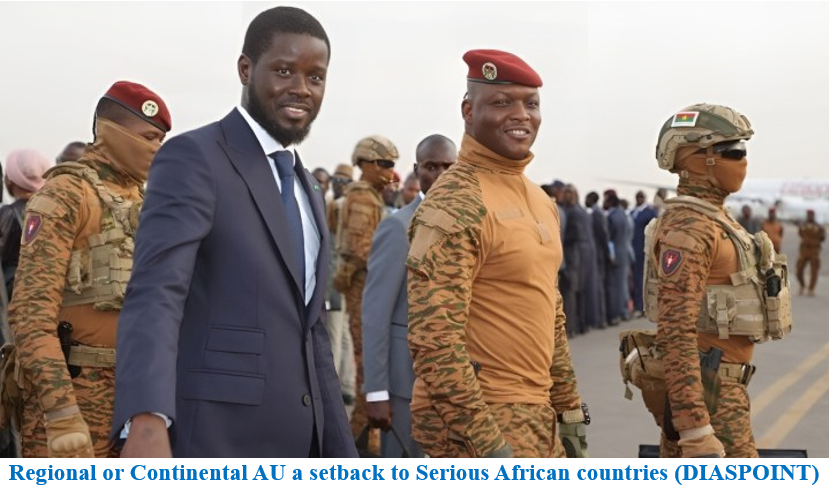Senegal may be instrumental in mediating tensions between Ecowas and AES states
Post By Diaspoint | June 17, 2024

Given their favourable standing with Alliance of Sahel States countries, Senegal’s new leaders could play a role in resolving regional tensions
Since taking office on 2 April, Senegal’s new President Bassirou Diomaye Faye has busied himself diplomatically in West Africa with two rounds of visits to countries in the region.
Faye’s initial trips to Mauritania, The Gambia, Guinea-Bissau, Guinea and Cape Verde aimed to strengthen cooperation with his neighbours. Trips to Côte d’Ivoire, Nigeria, Ghana, Mali and Burkina Faso were seemingly to foster reconciliation between the Economic Community of West African States (Ecowas) and its three members that formed the Alliance of Sahel States (AES).
AES is a common defence organisation created in September 2023 by Mali, Burkina Faso and Niger, who announced their withdrawal from Ecowas in January this year. The decision raised concerns about the potential impact on Ecowas and the three Sahel nations. Under the Ecowas treaty, the exit takes effect 12 months after the official notification, provided it isn’t withdrawn.
With seven months remaining, the crisis must urgently be resolved. It threatens to undermine the achievements of integration and further weaken a region already struggling with transnational security threats and geopolitical challenges.
Ecowas is an essential institution that must be safeguarded. The free movement of people and goods is a major achievement that distinguishes West Africa from other regions on the continent. Ecowas has helped restore security and democracy in West Africa and has contributed to resolving civil wars in Liberia, Sierra Leone, Guinea-Bissau (in the 1990s), Côte d’Ivoire (2002-10), Mali (2013) and Gambia (2016) through diplomatic efforts and military interventions.
Read More from original source
